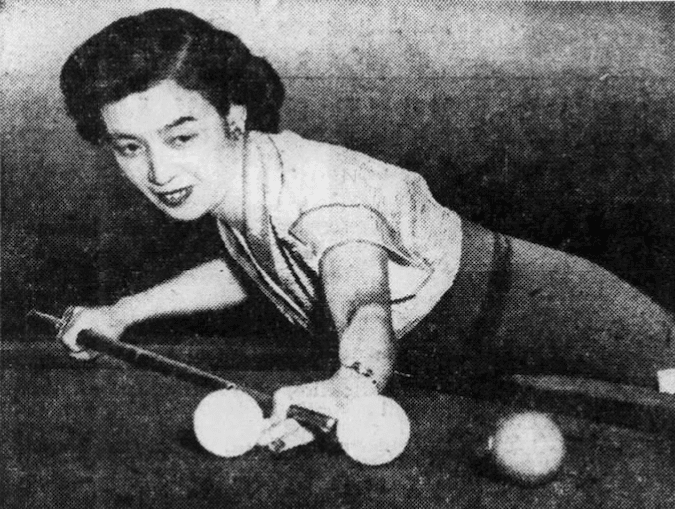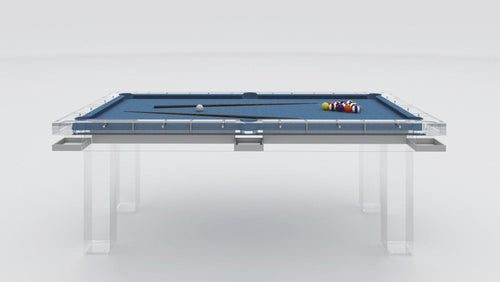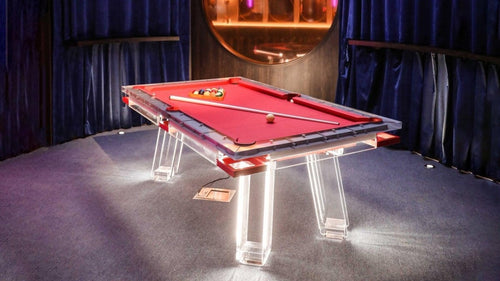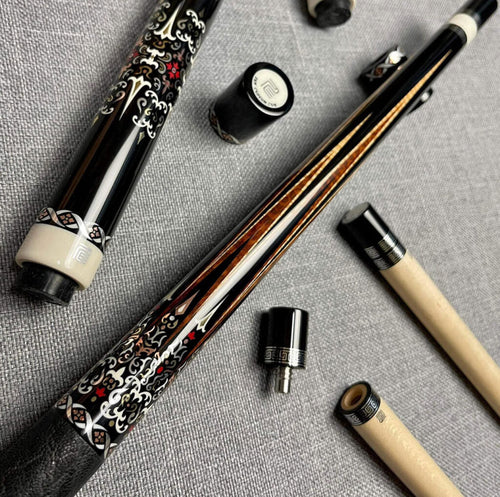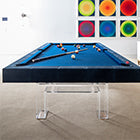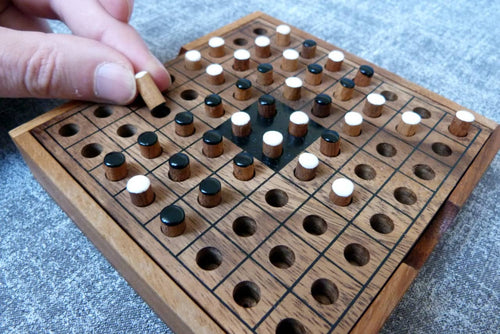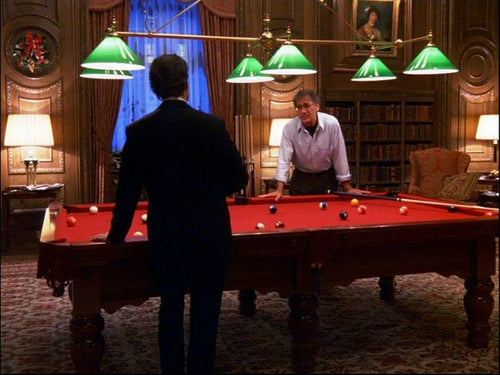Enjoy our modern designs
Fifty years after its golden age, the sport still argues over its ultimate master
The question arrives like clockwork in smoky pool halls from Manila to Minneapolis, usually around the third beer or after someone's just witnessed an impossible bank shot: Who's the greatest pool player who ever lived?
It's the kind of debate that can stretch past closing time, fueled by YouTube videos of legendary matches and dog-eared copies of The 99 Critical Shots in Pool. But for all the passionate arguments and statistical deep-dives, one name surfaces more than any other, spoken with the reverence typically reserved for virtuoso pianists or chess grandmasters.
Efren "Bata" Reyes. The Magician.
The Humble Genius From Pampanga
On a humid evening in 1999, Reyes stepped up to the table at the World Pool Championship in Cardiff, Wales, facing Germany's Oliver Ortmann in the final. What happened next would be replayed thousands of times on grainy tournament footage: Reyes, trailing badly, executed a series of shots so improbable that even seasoned professionals in the audience gasped audibly.
He didn't just win that match. He redefined what winning looked like.
"I've never seen anything like it," recalled Johnny Archer, himself a world champion, years later. "Efren sees the table differently than the rest of us. Where we see problems, he sees possibilities."
Born in 1954 in Angeles City, Philippines, Reyes learned pool the way most kids learn to ride bikes—through necessity, repetition, and an almost mystical intuition for the physics involved. By his teens, he was hustling games in local halls, earning enough to support his family while developing a reputation that would eventually span continents.
What sets Reyes apart isn't just his record—though being the only player to win world championships in both 9-ball and 8-ball doesn't hurt. It's the way he plays, as if the laws of geometry bend slightly in his favor. Opponents describe the eerie experience of watching him study a seemingly impossible layout, then execute a solution no one else had even considered.
The Old Guard: When Pool Was King
To understand Reyes' greatness, you need to appreciate the giants on whose shoulders he stands. In the smoky ambiance of mid-20th century America, pool enjoyed a golden age that produced legends whose names still echo in tournament halls today.
Willie Mosconi embodied precision incarnate. Between 1941 and 1957, he won the World Straight Pool Championship 15 times. His world-record run of 526 consecutive balls (1954) stood for decades as the sport's Mount Everest.
"Willie never missed," recalls Billiards Digest historian Mike Shamos. "He approached the game like a Swiss watchmaker approaches a timepiece. Every movement had purpose."
But if Mosconi was pool's technician, Rudolf "Minnesota Fats" Wanderone was its showman. His outsized persona and pop-culture fame after The Hustler helped cement pool in the American imagination—even if the trophy case didn’t match the myth.
"Fats understood something the others didn't," says historian R.A. Dyer. "Pool isn't just about making balls. It's about making people believe in magic."
The Fierce Competitors
Modern pool's intensity can be traced to Earl "The Pearl" Strickland, whose five U.S. Open 9-Ball titles arrived with psychological warfare that rattled opponents.
"Playing Earl was like boxing someone who hits you before you even know you're in a fight," said one former tour professional. "He made you doubt your own game."
Then there's Johnny "The Scorpion" Archer, a model of technical mastery whose methodical problem-solving defined American pool for a generation.
And Allison Fisher shattered barriers. The English champion dominated the women's game through the ’90s and 2000s and proved elite fundamentals are genderless.
The Alchemy of Greatness
What turns a great player into a legend? It’s a stack of traits that multiply: supernatural cue-ball control; pattern vision that compresses complex layouts into simple routes; and composure that survives heat.
Innovation is the accelerant. Reyes normalized shots others called impossible; Mosconi codified patterns players still study. Legends expand the game’s vocabulary.
Above all: vision. The greats don’t just see the shot. They see the sequence, the safety tree, the bailout—three moves ahead.
The Infrastructure of Excellence
Behind every champion sits an ecosystem. Leagues and tours—like the APA—build pathways from local nights to pro lights. International circuits brought Asia, Europe, and the Americas into one talent pool, raising the floor and the ceiling at once.
"We're not just running tournaments," says APA’s Larry Hubbart. "We're creating pathways. Every world champion started somewhere."
The Modern Game
High-speed video and analytics sharpen mechanics. Global formats standardize rules. Fields are deeper, prize money bigger, margins thinner. Yet the job hasn’t changed: move a white ball through space with such control that inevitability replaces luck.
In an age of parity, will we see dominance like Reyes again? Maybe not—because everyone learned from him.
Frequently Asked Questions
Who is considered the best pool player ever?
Consensus leans to Efren Reyes for multi-discipline mastery and unmatched creativity under pressure.
Who are some famous pool players?
Efren Reyes, Willie Mosconi, Minnesota Fats, Earl Strickland, Johnny Archer, and Allison Fisher headline most lists.
What makes a great pool player?
Elite cue-ball control, pattern play, shot selection, mental toughness, and the ability to execute under pressure.
Are there professional pool players?
Yes—global tours and leagues support full-time pros, with major titles offering substantial prize pools.
The Eternal Debate
In a Queens pool hall, the argument loops: Mosconi’s precision, Strickland’s fire, Fisher’s dominance. Then someone says “Reyes,” and the room softens—because his genius feels less like comparison and more like exception.
Maybe that’s the answer. In a sport built on probability, one player made the improbable common. That’s a different kind of crown.
Build a Table Worthy of a Legend
We craft custom pool tables with pro-grade play and gallery-level finishes—designed for your space.

